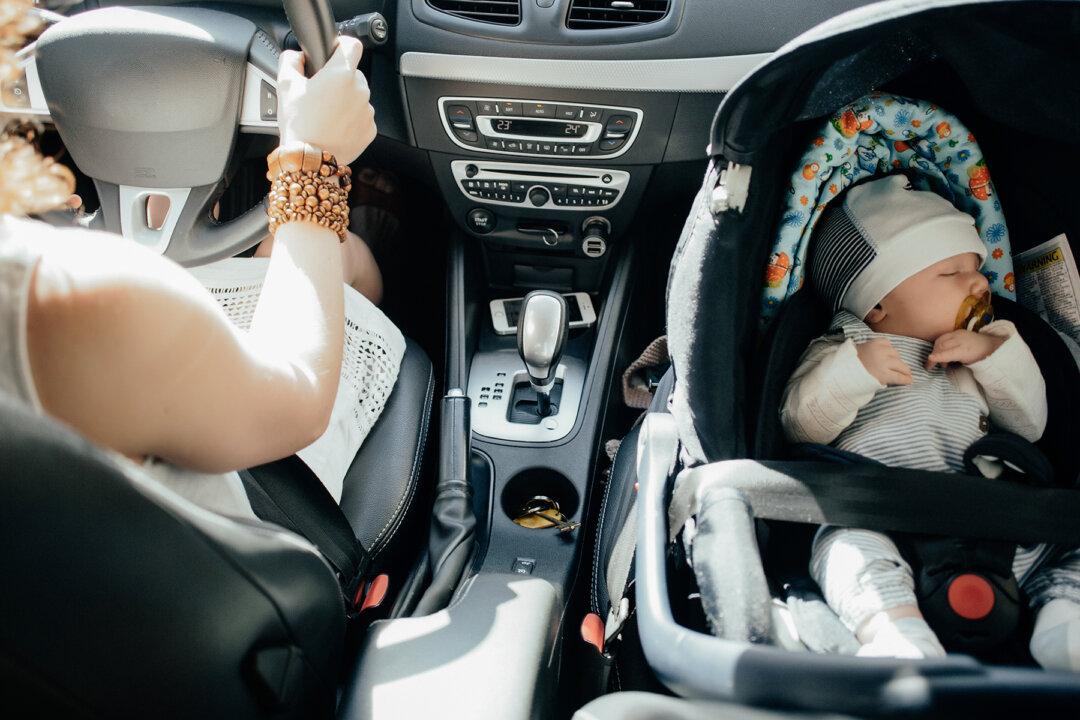From the archives: This story was last updated in September 2019.
A mother, enlightened by a horrifying experience, wants to spread a warning to other parents. Her 3-week-old baby stopped breathing after a two-hour journey in a car seat.Kirsti Clark, then 28, and her husband, Christopher Clark, then 29, realized something was wrong when they returned home from an afternoon shopping trip. Baby Harper’s lips turned blue, her jaw clenched shut, and white foam started frothing out of her nose and mouth.




